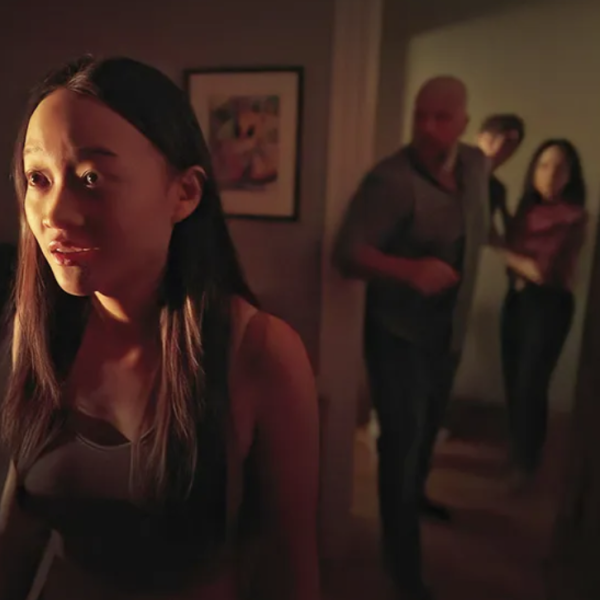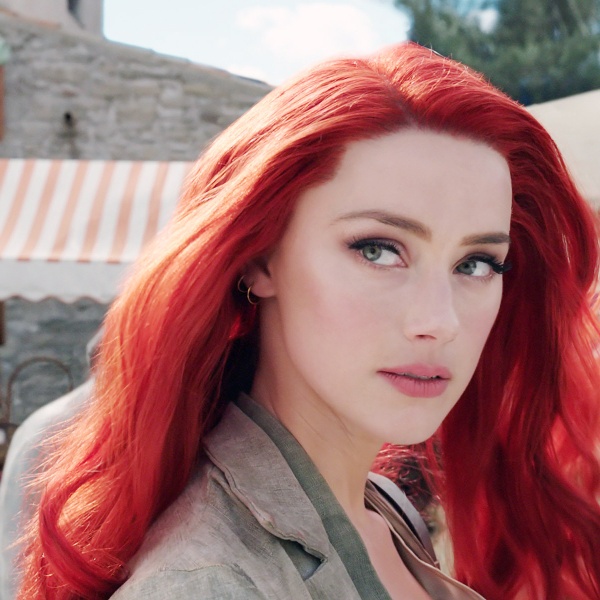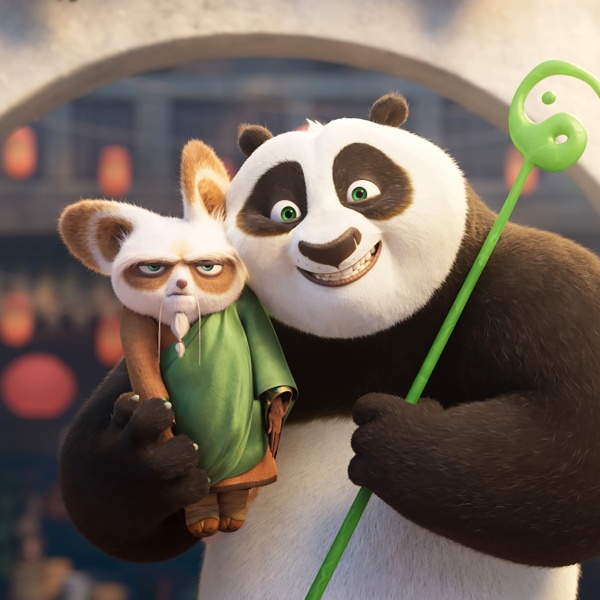Academy-Award Nominated Actor Talks Working With Peter Weir On ‘The Way Back’

EXCLUSIVE: When talking to Ed Harris this week about his turn as the mysterious Mr. Smith in Peter Weir‘s grueling (but life-affirming) “The Way Back,” we couldn’t help but ask him about the status of an “Appaloosa” sequel. We’re big fans of the 2008 western, which Harris directed and co-starred in, alongside his “History of Violence” co-star Viggo Mortensen, Renee Zellweger (in one of her best post-“Cold Mountain” performances), Lance Henriksen, and Jeremy Irons (as a scenery-chomping villain). The movie had a laid back, sardonic vibe, thanks largely to the fact that it was based on a novel of the same name by smart-ass crime novelist Robert B. Parker. There were two more books based on the characters that Harris and Mortensen portrayed, so we figured a return would be likely, given that Harris has mentioned a sequel many times in the last few years.
Well, not quite. It sounds like there were definite plans but a certain actor wasn’t exactly ready to saddle up again. “I had thought about wanting to do a sequel to ‘Appaloosa.’ But Viggo wasn’t really up to playing Hitch again and it kind of felt like we were meant to do those films together,” he told us.”So, kind of put that on the back-burner.”
He still wants to direct again, though, and it sounds like he wants to do it sooner rather than later. “Yeah, I mean, I do want to make some more films. There are a couple of things I’m thinking about, but I’m really looking forward to directing again. I love doing it. It just has to be something that I’m really rarin’ to do. Hopefully I’ll get inspired by something soon.”
Read on, for after the jump we continue our wonderful conversation with the Academy Award-nominated actor, who talks about the physicality of his role in “The Way Back,” what directors he’d like to work with again (and for the first time), who he plays in “Man on a Ledge” and why he’s pretty much given up figuring out what will happen to his movies once he’s done with them.

The Playlist: Could you describe your relationship with Peter Weir?
Ed Harris: Well, it’s pretty much a director/actor relationship. We’ve done two films together. And after we worked together on “The Truman Show,” which was, gosh, probably 11 years ago or something (longer than that maybe) and I always wanted to work with Peter again. And I was really, really excited when I heard he was interested in making this movie and in me playing Mr. Smith. He’s the most attentive director I’ve ever worked with. I just love working with him. He was an actor himself when he was younger and knows what all is involved in portraying a character and being specific. So I was glad to have to have that opportunity.
And it’s specifically his approach to actors that makes him such an attractive director to work with?
Harris: Yeah, I mean… First of all, he’s really careful with his script and he doesn’t present it until he feels it’s ready to shoot and, you know, he’ll talk to you about your character. He’ll also suggest you do a lot of homework, on your own, in terms of your character’s backstory, that kind of thing. He’s pretty open to ideas, if you have thoughts about your character or whatever. He’s very, very attentive and you feel that attention when you’re working, you know that someone is paying attention, and it makes you focus even that much more.
Weir had talked about working on a few different projects in between “Master and Commander” and “The Way Back.” Did he ever talk to you about being a part of any of those?
No. No. We were kind of out of touch with each other for the most part after “The Truman Show.” You know, I saw “Master and Commander” and appreciated it, but I hadn’t seen him or talked to him hardly at all.
What about this story drew you in?
Well, the main thing that drew me in was Peter, to tell you the truth. I figured if Peter was going to embark on this adventure then he had something that he wanted to say. And, you know, the first time I read it, I wasn’t quite sure who Mr. Smith was. And then I did a lot of research about Americans that had gone to Russia at that time and things started falling into place. But it was really Peter that was the main attraction. If another director had been making the movie, I’m not sure I would have said yes [editor’s note: interestingly, Colin Farrell recently said the same thing].
In terms of physicality, what kind of experience was shooting the film?
Well, it was great. It was very demanding, on a day-to-day level. It was ten below in Bulgaria, and 110 in Morocco. You know, it was almost like the harsher the conditions were, the more you felt like you were doing your job, in the sense that you were trying to depict the reality of this walk that these people were going through. So, yeah, it was tough. But it was, ultimately, very rewarding. I love it.
Was there a sense of camaraderie with the other actors, in the sense that you were all doing it together?
Very much so. Peter was very careful to cast people that he thought not only could portray the characters but also he knew would get along, and had that kind of attitude about working that was, you know, for the film and not just a personal trip. We all got along great. We were there a couple of weeks before we started filming; we did a lot of work together, a lot of talking, a lot of physical things. And it was a pretty tight bunch. I think we all grew pretty close with one another and had a lot of respect for each other and watched each others’ backs. It was good.
The range of actors was really impressive on this movie…
Yeah, yeah, Saoirse [Ronan] was wonderful. And Jimmy Sturgess. And the guys from Romania and Gustaf [Skarsgard] from Sweden. Yeah. It was a good bunch.
Did you ever wonder that watching the movie might be too tough on people?
No. That was never a concern of mine. You know, it had to be. The more specific it was and the more brutal, in a way, the better it was going to be. We shot a lot of stuff that wasn’t in there. The first time I saw the film I was thinking more about what wasn’t in there than what was. But then I saw it a couple more times, and I just kind of appreciate it for what it is. No, that was never a concern of mine, personally.
What was left out that you thought was going to be in there?
Oh, there was a bunch of things. Nothing really specific. We shot a lot of footage of different events along the walk. There was one time where we dug this hole and buried ourselves in this hole in this snow and covered ourselves in branches. And there was more fishing stuff, we actually saw Mr. Smith catch some fish. You know, just stuff like that. No real relationship-stuff, just more physical, survival kinds of things.
Now that you’ve seen it a few times have you been pleased with the way audiences have reacted?
You know, we did an 8-day trip in Europe – Spain, Paris, London – and audience response has been very positive. You can tell people were really paying attention to the movie. But I’ve also heard people who weren’t very excited about it. But everybody’s got their own feeling about things. And the one thing that Peter was very careful about, was anything that reeked of any kind of sentimentality, he really didn’t want to go that way. He really wanted to paint this picture of people putting one foot in front of the other to get to freedom.
Can you speculate on why it had such a tough time getting American distribution?
I don’t think it takes too much speculation in terms of the fact that there’s nobody chasing them, there’s no real sex involved. The danger is whether or not they’re going to survive. There’s no monster chasing them or bears or anything. It’s – can they live on whatever food they can find and can they make it 4,000 miles to where they need to get to. I was a little surprised nobody wanted to pick it up. But we’re living in a day and age when a picture doesn’t make money in its first weekend, you don’t really hear from it again. It’s a demanding film that asks you to sit down and watch. I don’t know. I’m sure Peter has his thoughts on the subject. I’m just glad he made the movie. It was a great experience. It’s just that one thing that I realize, as time goes by, is that you make a film (whether you’re directing it or whatever) and the rewarding and fulfilling part of it is making the movie. Because, afterwards, who knows what’s going to happen.
You have some pretty big movies coming out. What can you tell us about your character in “Man on a Ledge”?
He’s basically a wealthy, industrious Donald Trump kind of guy, who’s basically the bad guy of the movie. It’s kind of a caper film, you know, I had a a good time doing it. Hopefully it’ll be an entertainment.
What about “Seconds of Pleasure?”
That’s something that Neil [LaBute] wants to do. I’ve read the script but I don’t know what’s going on with that.
Is there a director who you’re dying to work with again or a filmmaker who you’d want to work with for the first time?
I think Cronenberg did a great job on “History of Violence,” I’d work together with him in a heartbeat. I’ve never worked with Scorsese. I really love Spike Jonze, I really love what his sensibility is. I wouldn’t mind working with Gus Van Sant. There’s a bunch of people who I’d like to work with who I haven’t worked with.
Is there anybody you’re looking to collaborate with the next time you direct?
You mean acting wise?
Yeah.
I don’t know. I’d love to make something with my wife, Amy Madigan. There’s a bunch of actors out there who I have a lot of respect for. I can’t start naming them, because there’s probably too many. But I’d really be fun to make a film with people who I have tremendously high regard for. But it’s all in the script, you know. That’s where it all starts – you have to have a story to tell and have to know how to tell it. I’ve never felt myself a director for hire. The two films I’ve made I’ve felt compelled to do. I hope I get compelled to do another one or two.
Does the experience on “The Way Back,” in terms of trying to find a distributor, scare you at all as a filmmaker?
It really doesn’t. You know, if you can get somebody to find yourself a financier, you’re halfway there. After my experience on “Copying Beethoven,” which I literally worked on for 10 months, almost a year, before we started filming. It was distributed into five theaters for five days. I threw up my hands with that stuff. As an actor, as a director, you try to do things that you feel in your gut that has something you need to get out, or say. You just hope it gets a chance to be seen by people. But you never know. You just never know.




